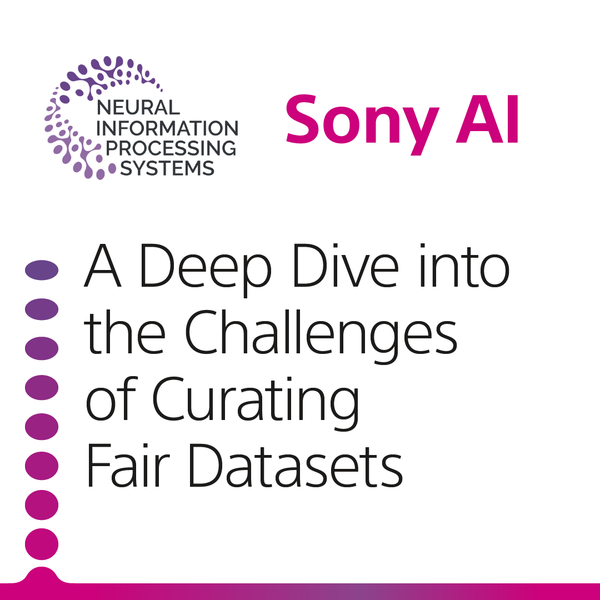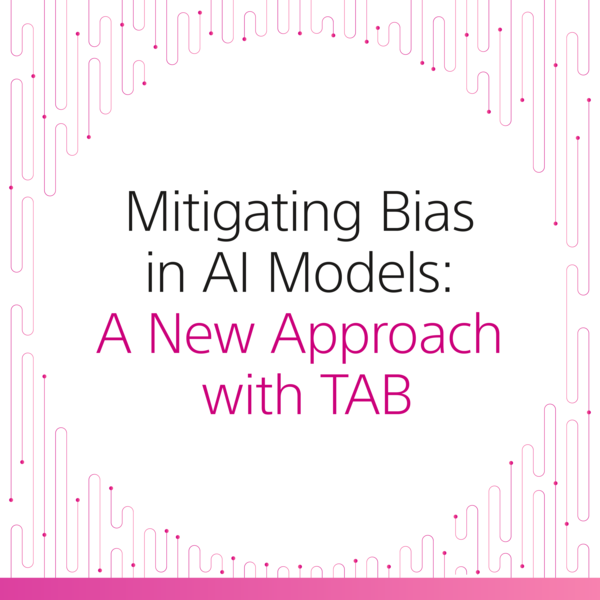AI Ethics


Leading the way towards more ethical AI that protects the interests of AI users
and creators by pushing the industry to ensure AI technologies
are fair, transparent, and accountable.
Our Approach
We are developing solutions to enable AI ethics in practice. The AI Ethics flagship project aims to create AI technologies that are fair, transparent, and accountable through cutting-edge research, particularly around ethical data collection, fairness benchmarks, and bias mitigation. In addition, it aims to make an impact in three key areas: AI development across Sony, the broader research community, and industry best practices.
Our Work

Ethical Data Collection
Ethical AI starts with ethical data collection. This project area focuses on the technical, legal and governance aspects of collecting data ethically, particularly when sensitive or personal data is involved.

Bias Detection and Measurement in Computer Vision
Developing fairer computer vision systems requires reliable methods for measuring algorithmic bias. This project area focuses on developing bias checking tools and fairness benchmarks for computer vision. To this end, this project area also examines the challenges of adequately measuring diversity in human images.

Algorithmic Bias Mitigation Techniques
There is no such thing as a completely unbiased model. As a result, bias mitigation techniques are critical for ethical AI development. This project area seeks to develop better techniques for addressing algorithmic bias, including exploring concepts of fairness routed in causality.
Our Team
Latest Publications
Machine learning (ML) datasets, often perceived as neutral, inherently encapsulate abstract and disputed social constructs. Dataset curators frequently employ value-laden terms such as diversity, bias, and quality to characterize datasets. Despite their prevalence, these ter…
The rapid and wide-scale adoption of AI to generate human speech poses a range of significant ethical and safety risks to society that need to be addressed. For example, a growing number of speech generation incidents are associated with swatting attacks in the United States…
In this paper, we propose an approach to obtain a personalized generative prior with explicit control over a set of attributes. We build upon MyStyle, a recently introduced method, that tunes the weights of a pre-trained StyleGAN face generator on a few images of an individu…
Latest Blog

Exploring the Challenges of Fair Dataset Curation: Insights from NeurIPS 2024
Sony AI’s paper accepted at NeurIPS 2024, "A Taxonomy of Challenges to Curating Fair Datasets," highlights the pivotal steps toward achieving fairness in machine learning and is a …

Mitigating Bias in AI Models: A New Approach with TAB
Artificial intelligence models, especially deep neural networks (DNNs), have proven to be powerful tools in tasks like image recognition and natural language processing. However, t…

Not My Voice! A Framework for Identifying the Ethical and Safety Harms of Speech…
In recent years, the rise of AI-driven speech generation has led to both remarkable advancements and significant ethical concerns. Speech generation can be a driver for accessibili…
JOIN US
Shape the Future of AI with Sony AI
We want to hear from those of you who have a strong desire
to shape the future of AI.







